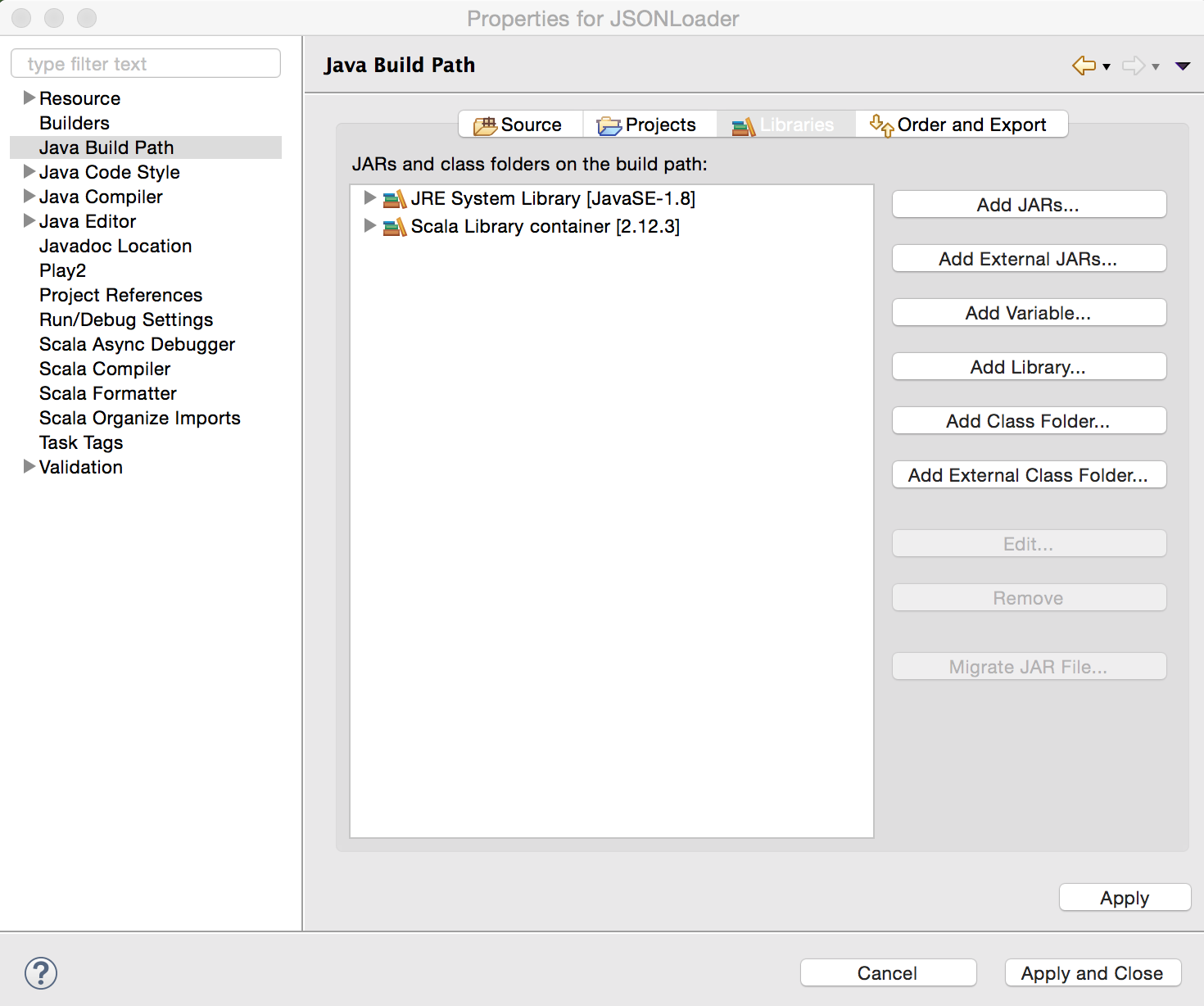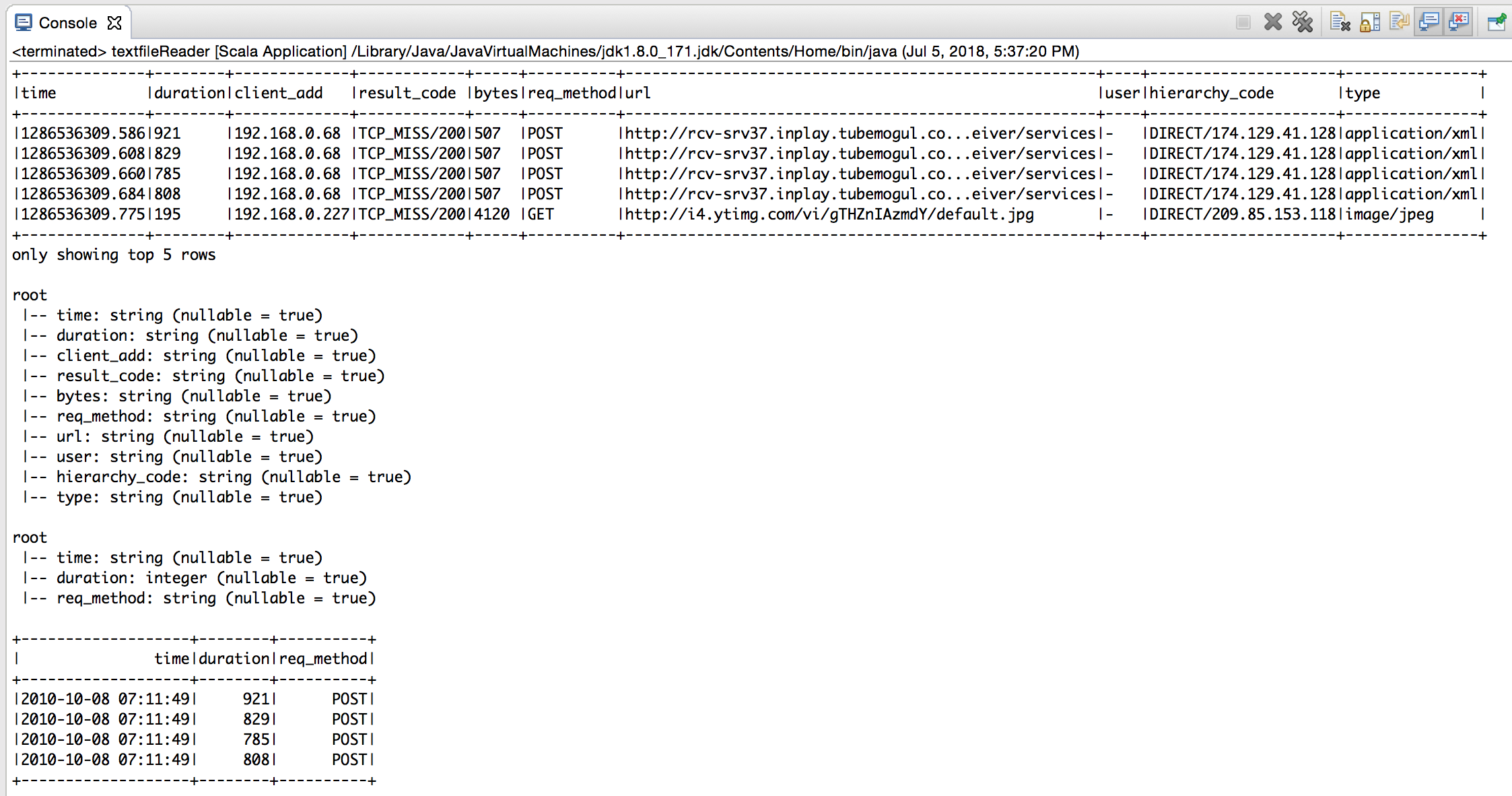
You can adjust this limit via tMinInflateRatio() if you need to work with files which exceed this limit. This may indicate that the file is used to inflate memory usage and thus could pose a security risk. ratio of compressed file size to the size of the expanded data.
#Spark scala xlsx file reader zip#
: java.io.IOException: Zip bomb detected! The file would exceed the max. 4JJavaError: An error occurred while calling o37.load. Return self._df(self._jreader.load(path))įile "/usr/spark-2.4.4/python/lib/py4j-0.10.7-src.zip/py4j/java_gateway.py", line 1257, in _call_Īnswer, self.gateway_client, self.target_id, self.name)įile "/usr/spark-2.4.4/python/lib/pyspark.zip/pyspark/sql/utils.py", line 63, in decoįile "/usr/spark-2.4.4/python/lib/py4j-0.10.7-src.zip/py4j/protocol.py", line 328, in get_return_value "header", "true").option("inferSchema", "true").load("test.xlsx")Įrror message : Traceback (most recent call last):įile "/tmp/aws-adv-daily.py", line 304, in mainįile "/usr/spark-2.4.4/python/lib/pyspark.zip/pyspark/sql/readwriter.py", line 166, in load

Is there a way to change this tMinInflateRatio() through the artefact ? adv2 = ("").option(


It seems to reach a compression limit and Spark invites to change a ziplib parameter One of them raises an error despite of correct content (tested with Libreoffice) I read some xlsx files in a s3 bucket with spark 2.4.4 and crealytics 2.11:0.13.1 artefact


 0 kommentar(er)
0 kommentar(er)
